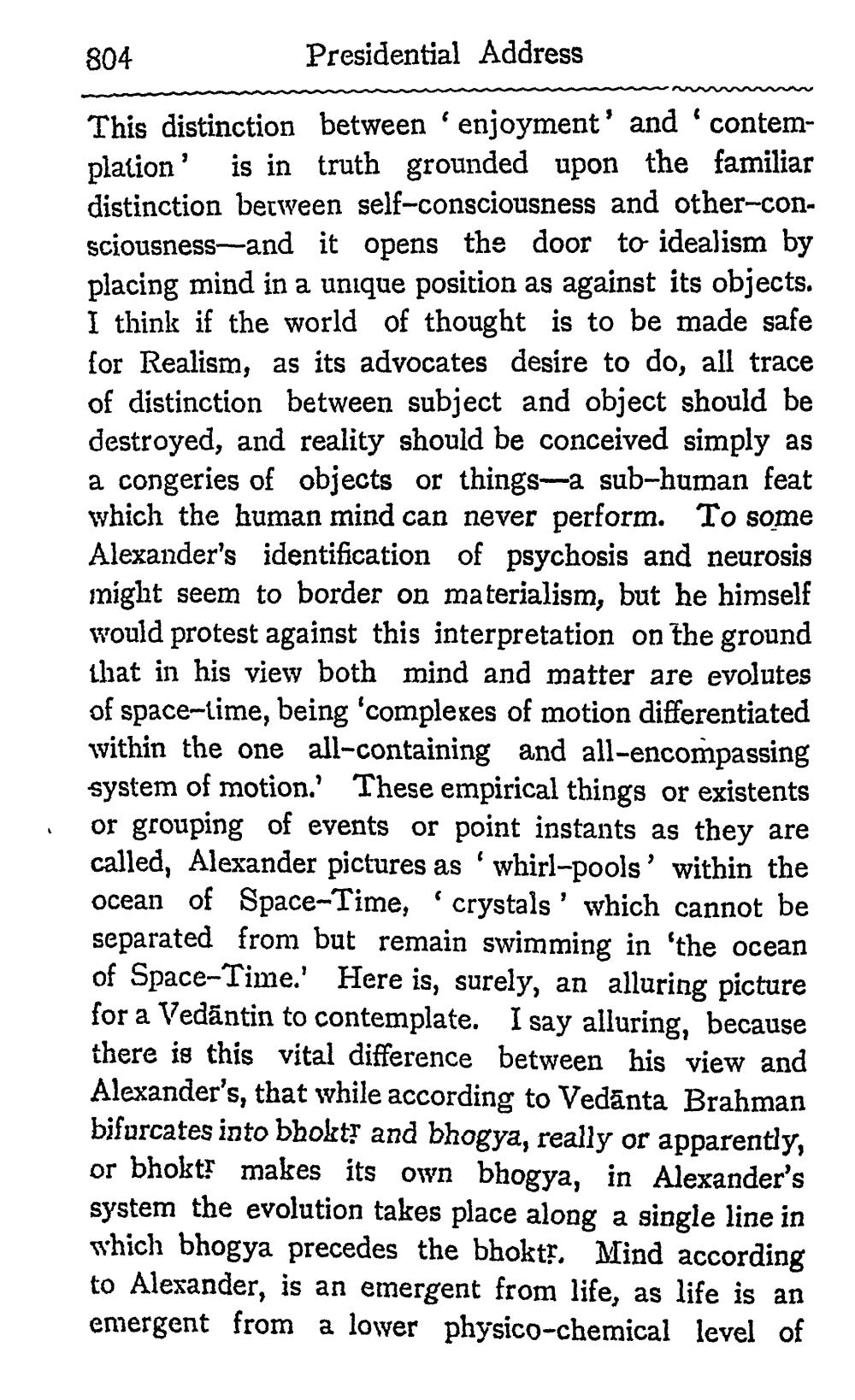________________
804
Presidential Address
This distinction between 'enjoyment' and 'contemplation' is in truth grounded upon the familiar distinction between self-consciousness and other-consciousness and it opens the door to idealism by placing mind in a unique position as against its objects. I think if the world of thought is to be made safe for Realism, as its advocates desire to do, all trace of distinction between subject and object should be destroyed, and reality should be conceived simply as a congeries of objects or things-a sub-human feat which the human mind can never perform. To some Alexander's identification of psychosis and neurosis might seem to border on materialism, but he himself would protest against this interpretation on the ground that in his view both mind and matter are evolutes of space~lime, being 'complexes of motion differentiated within the one all-containing and all-encompassing system of motion. These empirical things or existents or grouping of events or point instants as they are called, Alexander pictures as 'whirl-pools' within the ocean of Space-Time, 'crystals' which cannot be separated from but remain swimming in 'the ocean of Space-Time.' Here is, surely, an alluring picture for a Vedāntin to contemplate. I say alluring, because there is this vital difference between his view and Alexander's, that while according to Vedānta Brahman bifurcates into bhoktr and bhogya, really or apparently, or bhokt makes its own bhogya, in Alexander's system the evolution takes place along a single line in which bhogya precedes the bhokt. Mind according to Alexander, is an emergent from life, as life is an emergent from a lower physico-chemical level of




